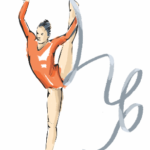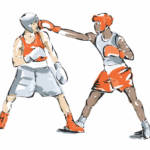Owning your strengths and weaknesses, and letting others know them, is key to financial and emotional fulfilment, finds Kirsten Levermore
“The team doesn’t need from you some vague willingness to ‘do whatever it takes’. It needs you to understand your strengths and weaknesses in vivid detail and then take it upon yourself to figure out how to navigate towards the strengths and away from the weaknesses.”
– Marcus Buckingham, Go Put Your Strengths to Work
Soccer player Wayne Rooney is England’s leading goalscorer of all time. He has kicked, headed and nudged more than 250 England, Everton and Manchester United goals, mostly from centre-forward. A specific set of strengths is needed to play from this position: a high degree of stamina, decision maker, creative, team player and a natural connector.
Unfortunately, say many critics, Rooney has not always been in a position that plays to his strengths. Many managers wasted him by playing him on the wing. Playing in that position requires an entirely different set of strengths. The former England captain struggled on the wing, just as he shone in the middle.
The work example
Sally Bibb, consultant, coach and author of The Strengths Book (LID Publishing), is a prominent advocate for embracing an individual, team or organization’s strengths.
“So often people hear from new companies, ‘We want you to be your whole self at work.’ But what,” Bibb asks, “does that mean in practice?”
Would you make an accountant submit graphics to marketing? Or, if an IT technician happened to be a great communicator, would you consider assigning them public-facing projects, or sending them to conferences to speak about your business?
People who use their strengths every day are six times more likely to be engaged in their work (Sorenson, 2014; Minhas, 2010). And, when strengths are factored in at the recruitment stage, salespeople at Standard Chartered Bank brought in 40% more revenue between three and six months than those hired in the traditional manner (HR, 2014).
“It makes sense emotionally, as well as financially,” Bibb offers.
But how does a person, or organization, identify their own strengths, let alone share them?
Find your strengths
Ask yourself: what did I do recently in work, or at home, that I really enjoyed doing? What is it about me made that thing so enjoyable?
That is a strength.

Strengths
- Things you are naturally good at
- Things you love doing
- Things you are energized by
- Values
- Motivators
- Things you can’t not do
Examples of strengths include communication, competitiveness, kindness, thriving under pressure, bravery and being a good listener.
Weaknesses that matter

“Too often,” notes Bibb, “companies sideline ‘weakness’ as a ‘development point’ or, worse, rebrand ‘weakness’ as ‘problem’ or ‘difficulty’.”
And this, The Strengths Book says, can be a dangerous – and limiting – label.
“Being human is important, and having weaknesses is a part of that. The key is deciding whether or not you want to do something about them.”
It is with this in mind that The Strengths Book asks you to reflect on the things you’re not so good at, to which you’re not naturally inclined, or don’t enjoy doing. You are then asked to highlight the ‘weaknesses’ that you actually want to change, and consider how you might go about that. It’s a freeing experience.
And besides, Bibb points out, weaknesses aren’t actually that important to success: “Many studies have shown you’re far more likely to be successful if you focus on improving your strengths than on trying to develop all of your weaknesses.”
Don’t overdo it

The line between ‘strength’ and ‘weakness’ can also be blurred. Bibb highlights an overplayed strength as one such tricky space. “Someone who is great at analysing situations might come across as picking things apart to an extent that they’re seen as overly negative,” she writes in the book.
Understanding and owning your strengths, the book argues, can help you avoid mistakes in two significant ways:
1 You are more aware of your behaviour and priorities, so you are less likely to be tripped up
2 People who know your strengths are less likely to perceive what you are doing, or your intentions, negatively
Reflect on how your strengths are related to your behaviour – do you act a certain way because of your strengths? Can any of these actions be negative, or interpreted negatively?
QUIZ YOURSELF
1 What makes you feel energized, excited, at ease? What comes naturally to you? 2 What are your weaknesses? 3 What are the weaknesses that matter to you? 4 Which strengths could be interpreted negatively?
Your place on the field
Sharing your strengths is not bragging – it’s crucial, says The Strengths Book.
Consider, it urges the reader, how leaders can ever know the motivations, efficiencies, skills and personalities of a large staff? If they had quick and easy insight into such things (i.e. their strengths and weaknesses), teams could be quickly assembled, workspaces, money and projects allocated to the correct configurations.
The same goes for recruiting new staff.
“Recruiters can look at an online profile or CV and think, ‘Does this person even need to pee?’” Ade McCormack recently commented to a delighted World of Work 2030 conference at Henley Business School: “A CV rarely describes a real person, or who you really are.”
Bibb agrees. “Knowing your strengths can save you from embarking on a career path or job that wouldn’t suit you, or make you happy.”
The argument, she believes, also works the other way: “You wouldn’t get the best from someone in a management position if they don’t like being in charge. Placing people in positions that play to their strengths makes sense – financially and emotionally.”
Ways to share your strengths (and weaknesses):
- Share strengths privately, with key members of your team, family or friends
- Share strengths outwardly, by pinning a list to your wall or desk
- Host a ‘strengths’ event (e.g. workshop, coffee morning) where people have to introduce themselves by their strengths
- Include strengths in an e-signature or social media biography
- Include a ‘strengths and weaknesses’ section in your CV
- Frame a behaviour: “I don’t mean to interrogate you, I am just trying to get a clear picture of the situation,” for inquisitive decision-makers

If Wayne Rooney’s strengths had been recognized earlier, if he had been played from the correct position from the beginning, he might have flourished earlier, developed faster, achieved more records, and set even higher targets.
It’s up to leaders – and to you – to share your strengths, and then utilize and develop them for all their worth.
— Kirsten Levermore is assistant editor of Dialogue

